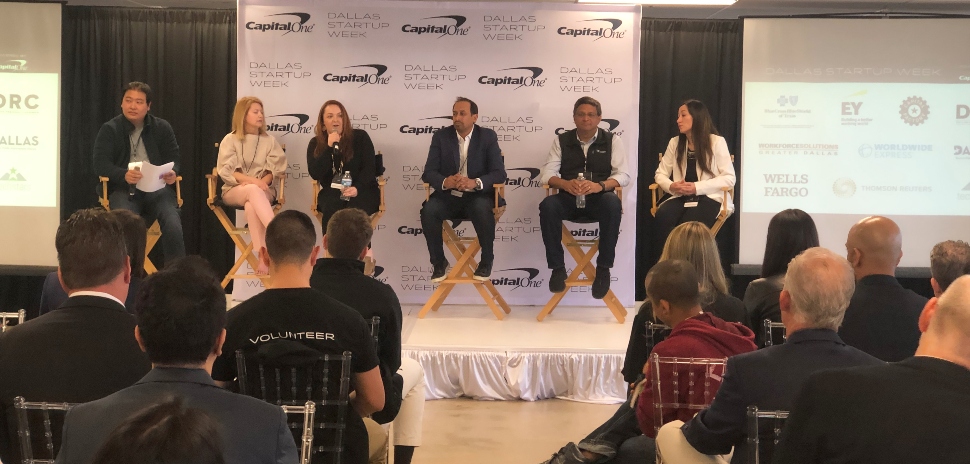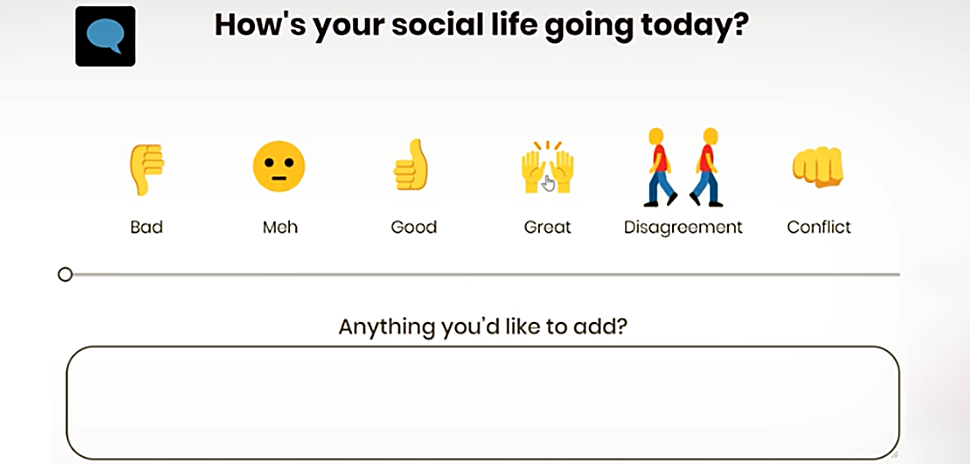Navigating the investment landscape in North Texas is no easy feat. To help un-muddy the waters, partners from prominent venture capital firms gathered Tuesday morning at Dallas Startup Week to answer startup’s most pressing questions about finding funding.
The panelists were Venu Shamapant of LiveOak Ventures, Cindy Revol of Perot Jain, Inobat Igamberdieva of Interlock Partners, Laura Baldwin of Golden Seeds, Ricky Tejapaibul of Tech Wildcatters, and Vik Thapar of Cypress Growth Capital.
What do investors look for in a startup?
Baldwin: “The founders are very important. It’s very important to have entrepreneurs who are passionate about what they’re doing and really have a good strategic plan. I think it’s also important to have a large enough total addressable market. Having a functioning product, having a solid plan [and knowing] what your goals are with a solid way to get there, and milestones that you can reach: Those are probably the most important things that we look for.”
Revol: “Is the founder someone we want to work with on a regular basis, but also, are they self-aware enough? Are they willing to accept feedback and potentially pivot or make a change or adapt as the market sends them different signals? And are they really self-aware and open about their strengths and weaknesses, as well as making sure they fill all the gaps within their business.”
Shamapant: “You can have the best house in a bad neighborhood, and it’s really not going to sell for something worthwhile. Versus you can have a mediocre house in a great neighborhood, and it can be very attractive. So we spend a lot of time on strategic aspects around markets. Are these markets that tend to lead newcomers to come in and compete? Are these markets where innovation is valued?”
Thapar: “If the CEO has the ability to recognize their weaknesses and bring other people to fill in those areas, obviously they can grow to endless amounts. So [it’s also] the ability to attract other pieces of the puzzle.”
Raising funding the right way
Igamberdieva: “Don’t set yourself up to very high valuation, because investors will hold you accountable. And when you get to that next stage, because a lot of entrepreneurs do that, especially if they’re in big industry where valuations are absolutely high. If you’re putting for yourself a $50 million pre-valuation, and then in a year, when you have to raise money, you can only support $25 million, that’s a big problem. Don’t put yourself in that situation.
Thapar: “valuation is important, but the terms and conditions are equal, if not more important. Just make sure you and your investors are on the same page on the terms and conditions—when you’re planning on exiting, and what’s their desired outcome. And, obviously board seating and things like that. But I would definitely hire a really good attorney that’s done this before and concentrate on all the areas not just the valuation.”
Picking the right investors
Igamberdieva: “You want someone who will provide value for your company, whether it’s a strategic vision, whether it’s customer introductions, whether it’s just getting you to the go-to-market strategy where you want to be in a year or two. So it very much depends on what you want. And when selecting an investor, interview them just as much as they’re interviewing you: You’re basically getting into marriage. So do your due diligence, you want to know that chemistry works.”
Shamapant: “The partnership doesn’t show up to your board meeting, one person does. You really need to know who that person is and whether you can work with that person, and how that person can manage their organization because that’s what you’re going to interact with. The firm will be there to sell you, but you’re going to work with one partner.”
Thapar: “Hopefully everybody’s batting perfect, but talk to those that haven’t gone so perfect, and how that went as well as the ones that have gone great. So just like you’re hiring an employee or a C-level suite, go talk to the market and see what it has to say about that person. Do some references, etc.”
Why Texas?
Revol: “If you’re a B2B company, there are a lot of customers here, so it doesn’t make sense to move to Silicon Valley where things are a lot more expensive. There are a lot of questions you should ask. That goes back to interviewing the investor: “Why do you want me to move? Why is that important to you? What is the real value?”
Thapar: “I’ve found Texas entrepreneurs are just scrappier. They do more with less. They’re not only looking at the top line, but they’re looking at the bottom line. And they’re more worried, rightfully so, about owning more of their company. I’ve found the coasts don’t really care about that. They’re all about making the pie bigger, which is nice, but there are only smaller and smaller pieces of the pie. These entrepreneurs are doing more, with a lot more doing more with less and owning more of the company.”
How do I get in touch with an investor?
Revol: “What you’re doing right now is the right thing to do. Come to these events. You have to just come here and ask. But do the research. Know who’s attending the event. I know sometimes it’s against our nature to go network and talk to people, but don’t be afraid to sell yourself and talk about that really awesome thing you’re building.”
Baldwin: “One of the things that we do [at Golden Seeds] is monthly office hours. Anybody can sign up for office hours and learn about us. I like the warm introductions. There are these smaller events where startups may come and speak. We go to those events as well. And so we are we meet companies that way.”
Shamapant: “Entrepreneurs are pretty scrappy and innovative people, so you can find a way to get a warm introduction if you want to. I think the biggest thing for us has always been—given our focus on just the Texas market—we tend to be much more focused on making sure we’re accessible to any deal, even if it’s too early. In fact, one of the easiest things to do is on our website. You can answer three questions and upload a presentation.”
Igamberdieva: “A lot of us probably won’t have time to go through 50 slides if you send us [a business plan], and we don’t know you. But if you do send a very brief, very concise, very articulate executive summary—your 30-second elevator pitch—and it’s really what we’re interested in, we will absolutely give you feedback, even if it’s too early for us. Don’t hesitate to reach out, but get included within the ecosystem.
Panel comments have been edited for brevity and clarity.
![]()
Get on the list.
Dallas Innovates, every day.
Sign up to keep your eye on what’s new and next in Dallas-Fort Worth, every day.

































































